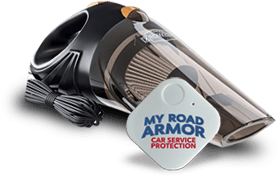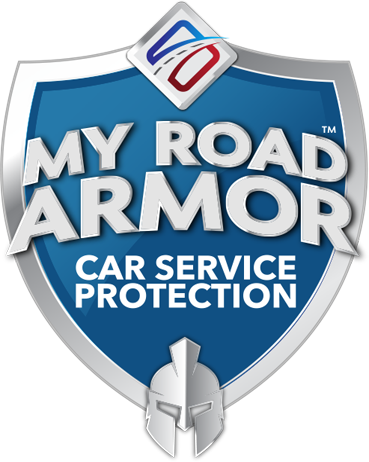Is Mechanical Breakdown Insurance a Good Investment?
A standard auto insurance policy rarely covers breakdowns that did not result from a car accident. So what happens if you run into a problem that a basic insurance policy can’t rectify? Do you decide to pay a large sum of money for a one time fix? Do you throw yourself into financial ruin over one car repair? Instead of pondering over a series of what-ifs, it would be prudent to look into mechanical breakdown insurance.
Table of Contents
What Is Mechanical Breakdown Insurance?
As stated, most insurance policies do not cover breakdowns that happen outside of car accidents. Mechanical breakdown insurance (MBI) covers repairs that are mechanical in nature; in other words, breakdowns that are unrelated to accident damage.
What Does Mechanical Breakdown Insurance Cover?
Although the items covered by MBI vary from company to company, they typically include:
What Is Not Covered By Mechanical Breakdown Insurance?
Although the items not covered by MBI vary from company to company, they typically do not include:
- Car accident damage
- Routine maintenance, I.E. engine tune ups, oil changes, tire rotation, wheel balancing, and suspension alignment
- Damage caused from neglect, I.E. infrequent oil changes or fueling your car with the wrong type of fuel
- Normal wear and tear, like worn out tires and brake pads
- Non-mechanical features like molding and trim
- Items already covered by a warranty
- Items covered by a manufacturer recall
- Items covered by a manufacturer’s repair program
- Pre-existing damage predating purchase of insurance
- Rust and other types of corrosion
Why Choose Mechanical Breakdown Insurance Over a Manufacturer’s Warranty?
When purchasing a car, getting a manufacturer’s warranty through your dealership may seem like an attractive idea. Unfortunately, a manufacturer’s warranty might leave you responsible for some out-of-pocket expenses which makes it more of a liability than an asset. Let’s take a look at some in-depth differences between mechanical breakdown insurance and a manufacturer’s warranty.
- A manufacturer’s warranty is often limited in terms of what mechanical issues it is able to fix, whereas MBI covers a much wider variety of mechanical issues.
- With a manufacturer’s warranty, your car can only be fixed at places that are approved by your car manufacturer. MBI usually provides a wider selection of repair establishments, thus allowing you to use a place of your own choosing.
- MBI and manufacturer warranties differ in regard to payment. Paying for a manufacturer’s warranty usually requires a lump sum payment at the time of purchase. MBI allows you to pay the premium as time passes during each policy period.
- In the long run MBI is not as costly as a manufacturer’s warranty, even though the deductible can sometimes be higher.
- MBI is regulated by state insurance laws and backed by insurance companies, thus ensuring expedient and professional repairs.
- A manufacturer’s warranty rarely lasts beyond three years, while MBI can last indefinitely. MBI protects your vehicle for longer.

Do You Really Need Mechanical Breakdown Insurance?
If you’re worried about expensive repairs down the road, MBI can provide peace of mind. Consider how likely it may be that your car experiences a breakdown that ends up costing more than your combined deductible and plan price. Generally, MBI plans have a $250 deductible, with your plan price likely being between $30 to $100 per year. If your plan covers your car for five years, the breakdown would have to cost more than$500 to fix in order to be worth it. Let’s say that your engine breaks down, resulting in a fix costing $2,500. With MBI, you would save $2,000.
When searching for a MBI plan, you should also consider the type of car you own. A vehicle that is very expensive to repair, like a Mercedes or a BMW, may benefit more from MBI than a car that is relatively inexpensive to fix, like a Toyota or a Hyundai. That said, MBI doesn’t always cover luxury cars. Make sure to do diligent research on what vehicles your chosen insurance company does and does not cover.
Used Cars and Mechanical Breakdown Insurance
You may be wondering whether having a new, used or leased care affects eligibility for mechanical breakdown insurance. Although new, used and leased cars can all be covered, there are usually mileage and age discrepancies from company to company. Some insurance companies require MBI to be purchased before a car is 15 months old or before it hits 15,000 miles. That said, most other companies offer MBI for older, higher mileage vehicles too. When researching potential companies, keep these things in mind.
Additional Considerations
Before purchasing mechanical breakdown insurance, you may want to consider several important factors:
- Does your plan allow you to choose your own repair shop? Although most insurance companies provide flexibility in terms of where you’re able to get serviced, your preferred mechanic might be one of the few excluded. It’s a great idea to ask your potential insurance provider where your vehicle can be serviced before you purchase a policy.
- Does your plan come with any added benefits? MBI plans are not all the same. Some plans may come with extras like roadside assistance, trip interruption coverage and even rental reimbursement coverage. Added benefits can make all the difference when choosing a plan.
- Is it possible to transfer coverage to a new owner? In the event that you either sell or give your car to another person, some insurance providers allow you to transfer coverage to a new owner. Some do not. Do your research!
- Have you already purchased an extended warranty through a manufacturer? If you already have one type of coverage, buying an additional could result in an overlap that leaves you spending more money than you need to.
If you have any questions or comments, we’re interested in responding to them. See you in the comments below!



